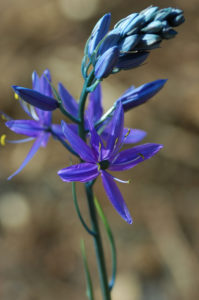 In 2014, Seattle voted to declare the second Monday of October as Indigenous People’s Day. Olympia followed in 2015, and Spokane and Bainbridge Island joined in 2016. In the last week, Port Angeles[1] and Tacoma[2] were added to the list. Over 55 cities and four states across the country celebrate Indigenous People’s Day on the second Monday of October.[3]
In 2014, Seattle voted to declare the second Monday of October as Indigenous People’s Day. Olympia followed in 2015, and Spokane and Bainbridge Island joined in 2016. In the last week, Port Angeles[1] and Tacoma[2] were added to the list. Over 55 cities and four states across the country celebrate Indigenous People’s Day on the second Monday of October.[3]
Indigenous People’s Day is a day to celebrate the heritage and culture of Indigenous Peoples and recognize the contributions that they have made to our communities and society. This day is a time to honor the 29 federally recognized tribes in Washington state, and all indigenous communities and people in Washington state, the United States and around the world.
Supporting tribal communities is essential to realizing OCVA’s vision of a future where all people have access to support, healing, and the ability to reach their full potential; where all people experience autonomy, dignity, freedom of identity and expression, and safety in their homes and communities.
Indigenous people experience disproportionately high rates of violence, with more than four in five indigenous people experiencing violence in their lifetime. Forty percent of indigenous women and 35% of indigenous men report experiencing violence in the past year.[4] Services provided by and for communities are essential to ensure that victims and survivors receive culturally appropriate and relevant services, which can assist in the healing process and change social norms that contribute to violence.
OCVA grants with 17 tribes across the state to provide services to victims and survivors of domestic violence, sexual assault, and all crimes. Below are a few examples of the types of services provided by tribal programs:
- Community responding and advocacy, providing support and resources to people impacted by violence
- Therapy and support groups
- Child Advocacy Centers, children’s services and parent support services
- Court Appointed Special Advocates, who provide support and assistance to children in the court system
- Services specifically for elders and vulnerable adults
- Holistic services, such as sweat lodges, wood carving, herb gathering and beading
- Community organizing, training, and education, to increase awareness of violence
- Primary prevention that is culturally appropriate and relevant to prevent violence before it occurs in their communities
If you would like to learn more about victim and survivor services provided in tribal communities, visit the National Indigenous Women’s Resource Center website: http://www.niwrc.org/. For more information about funding opportunities for this work, please contact our office.
Sources:
[1] http://www.peninsuladailynews.com/news/port-angeles-oks-indigenous-peoples-day-after-debate/
[2] https://www.king5.com/article/news/local/city-of-tacoma-to-recognize-indigenous-peoples-day/281-600153271
[3] http://time.com/4968067/indigenous-peoples-day-columbus-day-cities/
[4] https://nij.gov/journals/277/Pages/violence-against-american-indians-alaska-natives.aspx